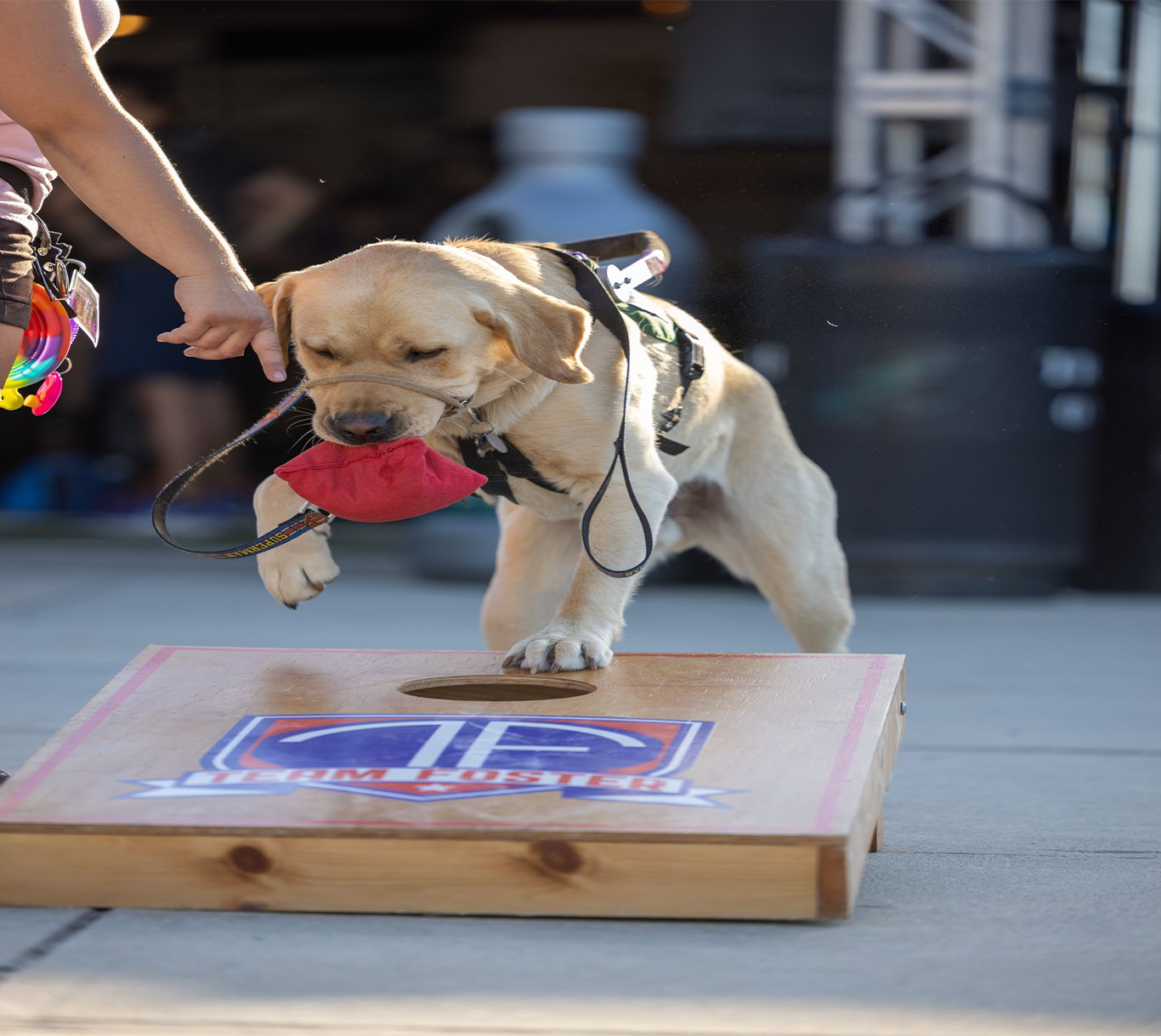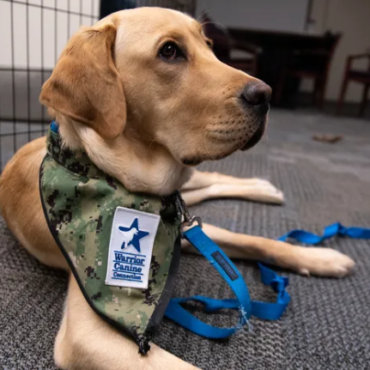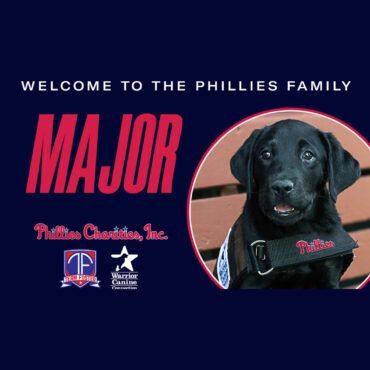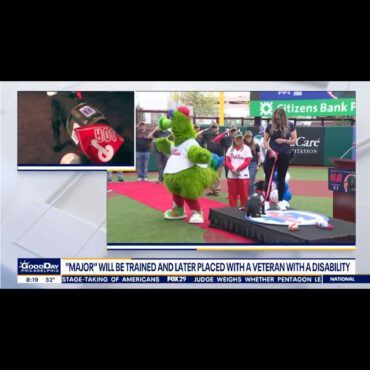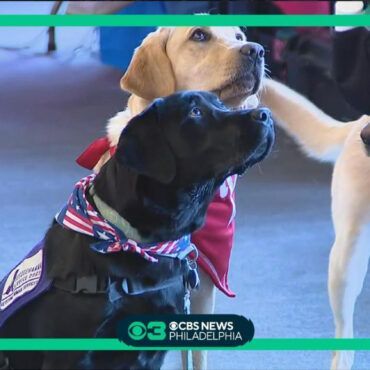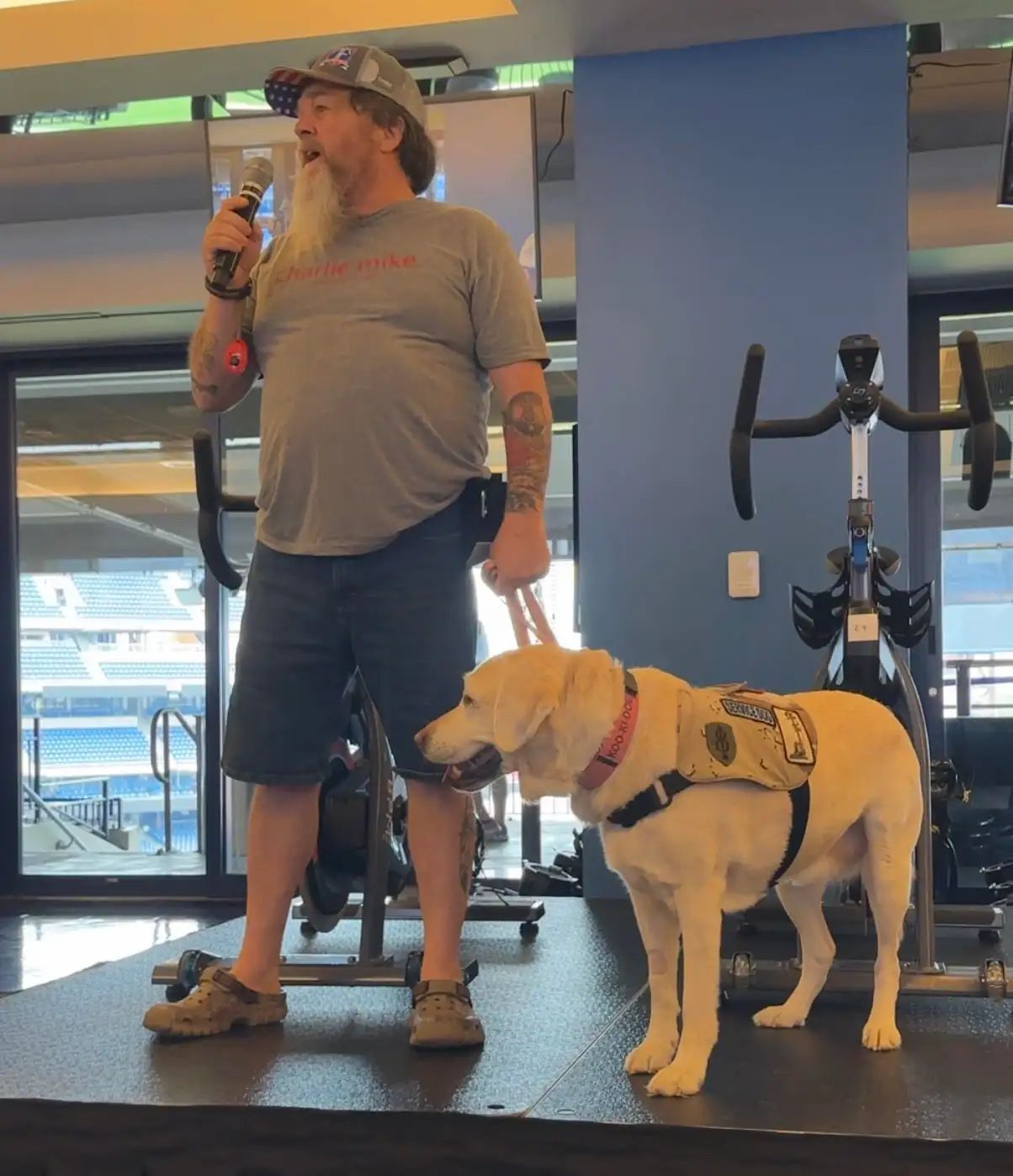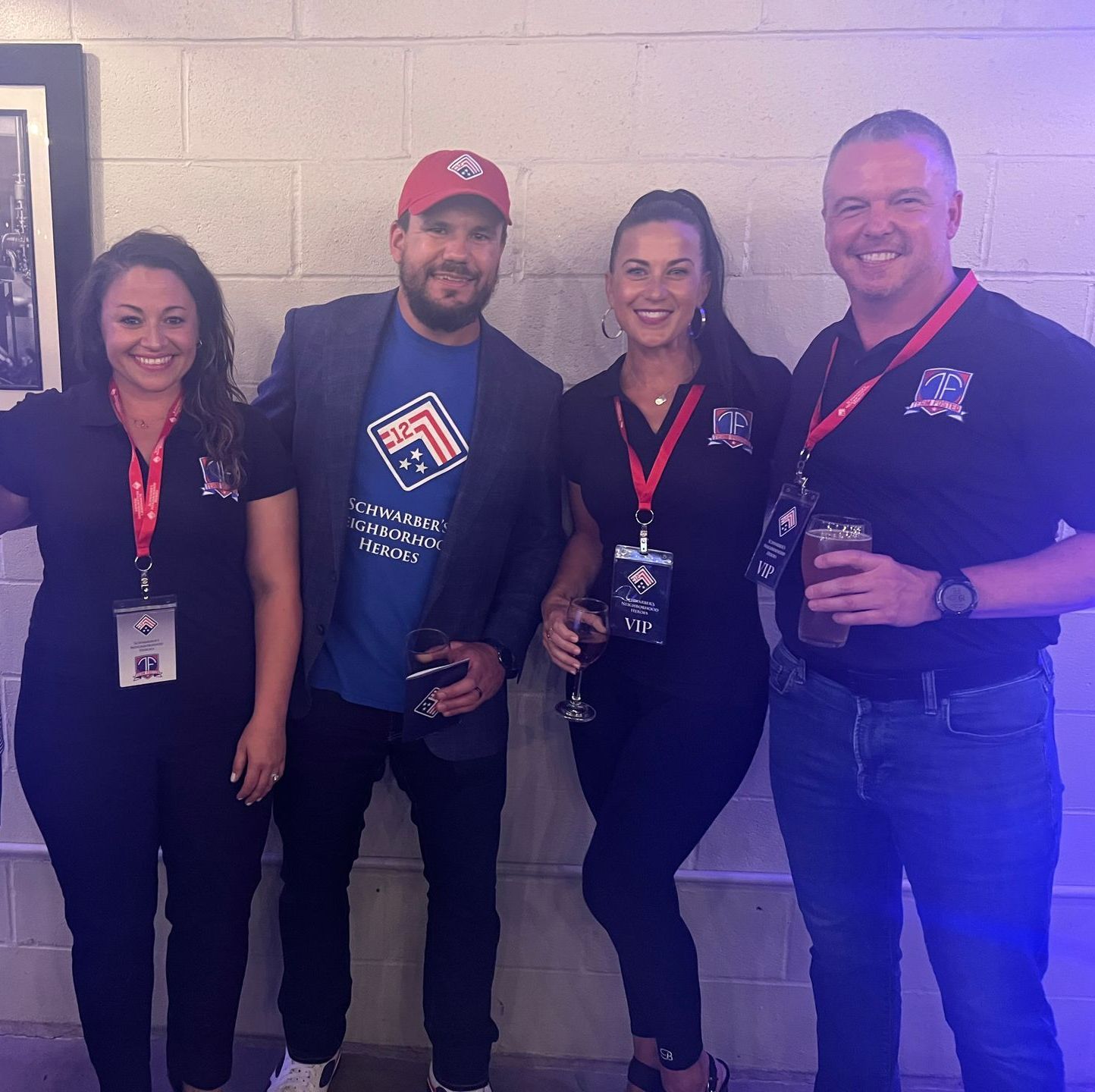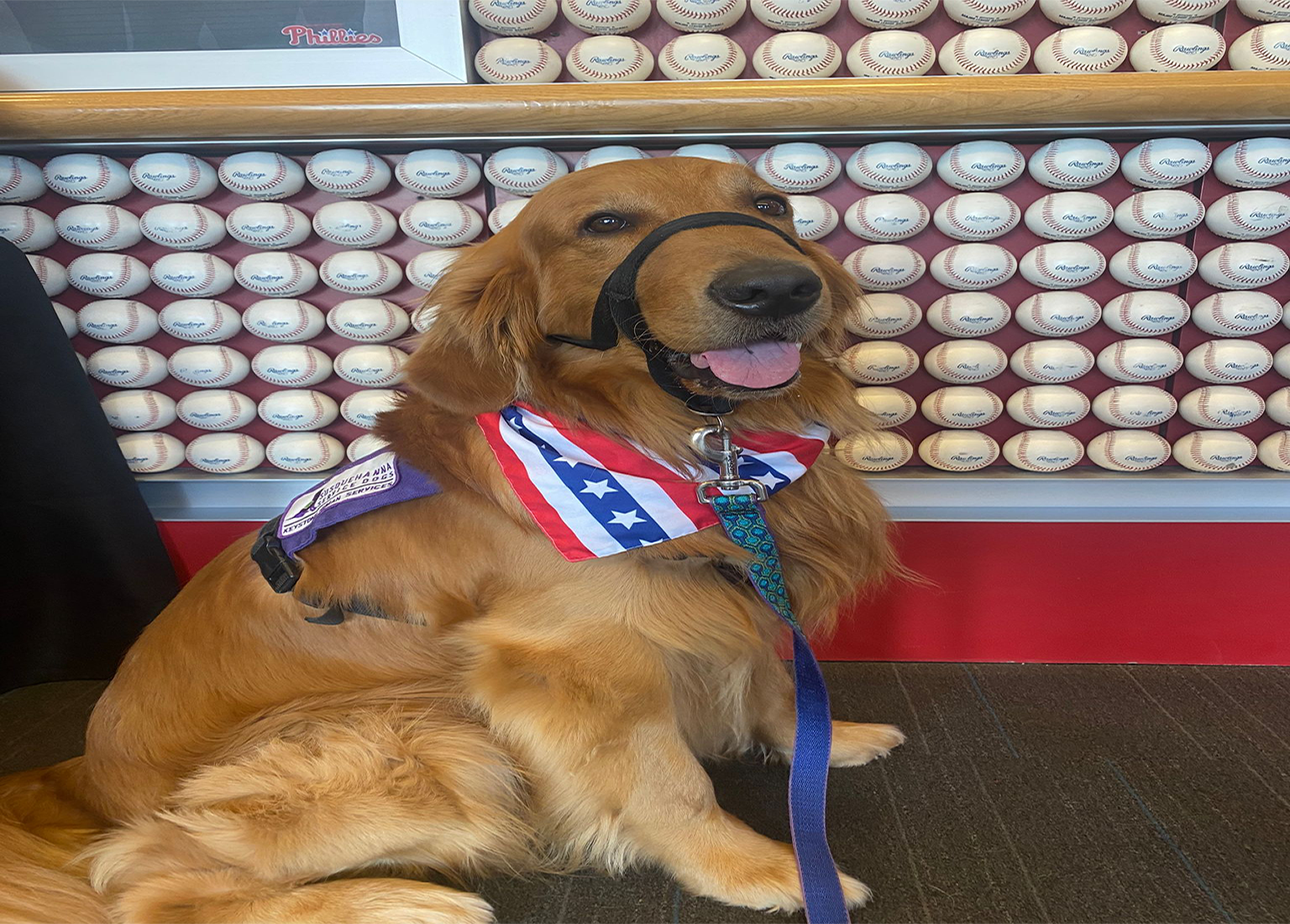
Team Foster NewS, Articles, and Updates
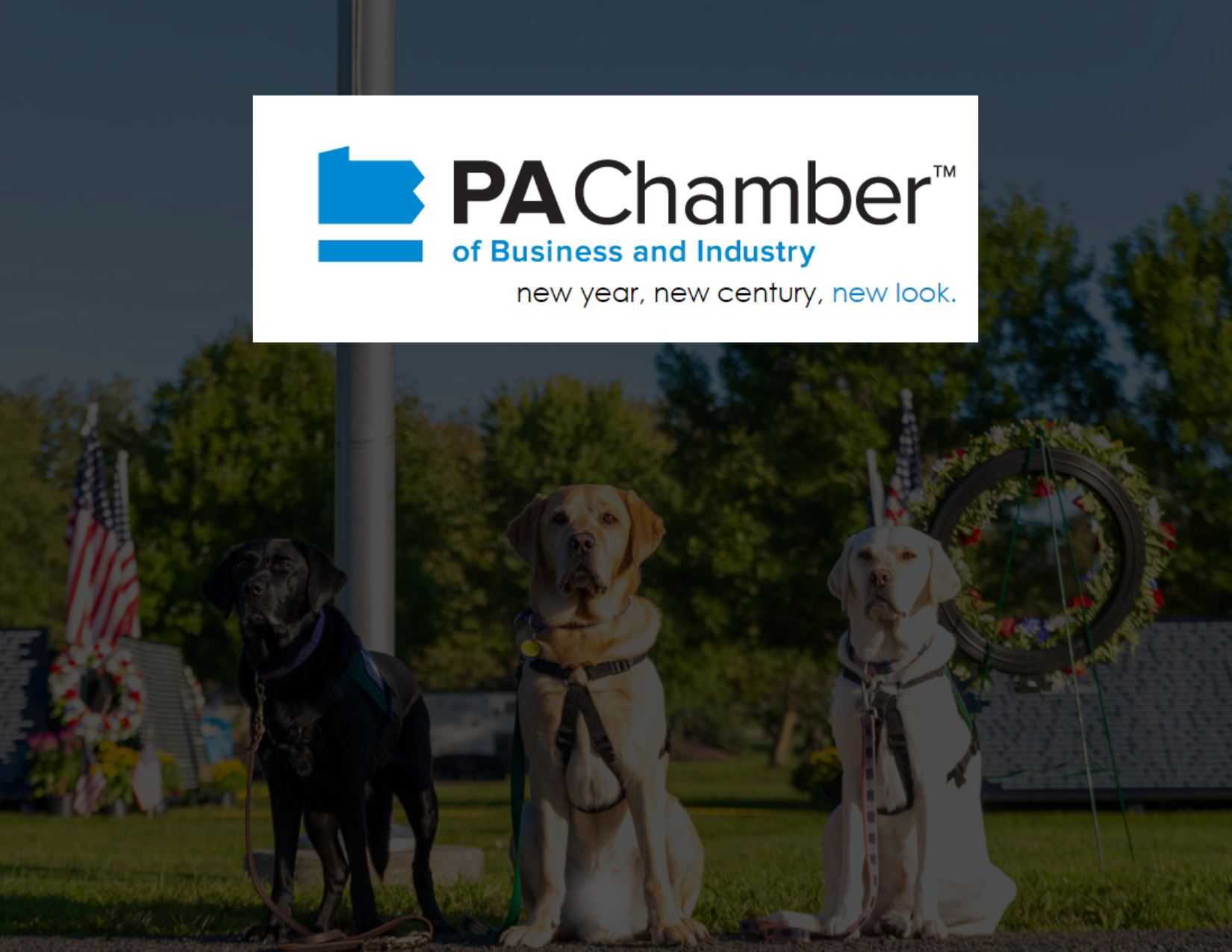
31 Jan, 2024
If you’ve ever entered a store and seen a dog accompanying its owner, chances are you’ve seen that animal wearing a distinctive vest, indicating their status as a service dog. While just as lovable as the pets we enjoy at home, service dogs offer extra therapeutic gifts – they’re extremely intelligent and highly trained. Most importantly, each time you see a service dog at a place of business, that animal is on an important and specialized mission – helping their human navigate the business they’re patronizing.

27 Sep, 2023
Simply put, TBI, or traumatic brain injury, happens when sudden trauma causes damage to the brain. This can be when the head suddenly or violently hits or is hit by an object, or when an object pierces the skull and enters the brain. Symptoms vary depending on the extent of the damage to the brain.
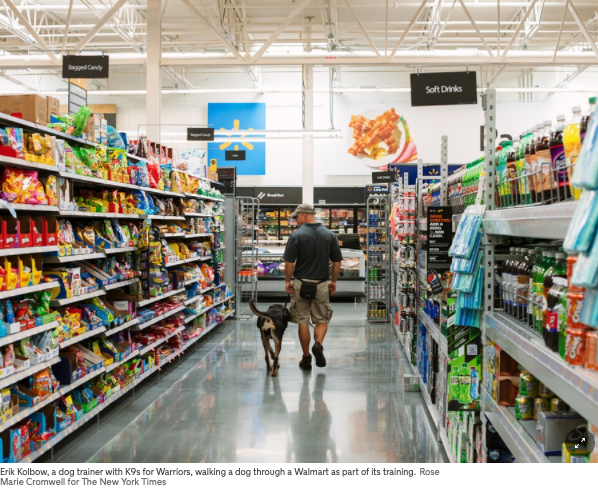
27 Sep, 2023
In 2019, the New York Times published an article, “Why the VA Won’t Pay for Service Dogs to Treat PTSD.” The article chronicled 10 years of roadblocks faced by Veterans in their effort to obtain funding from the Veterans Administration (VA) for service dogs as a legitimate treatment for PTSD. In 2009, the first Senate bill was introduced, calling for the VA to to a three-year pilot study on the benefits and feasibility of using service dogs to treat PTSD. Despite receiving bi-partisan support and being incorporated in the 2010 defense budget, the study has yet to be completed. Again, in 2016, the Puppies Assisting Wounded Servicemembers (PAWS) Act received rare bipartisan support in Congress, yet the VA has yet to implement the grant system making it easier for Veterans to get access to service dogs to assist them with anxiety, stress, and fear caused by their time serving in the military.
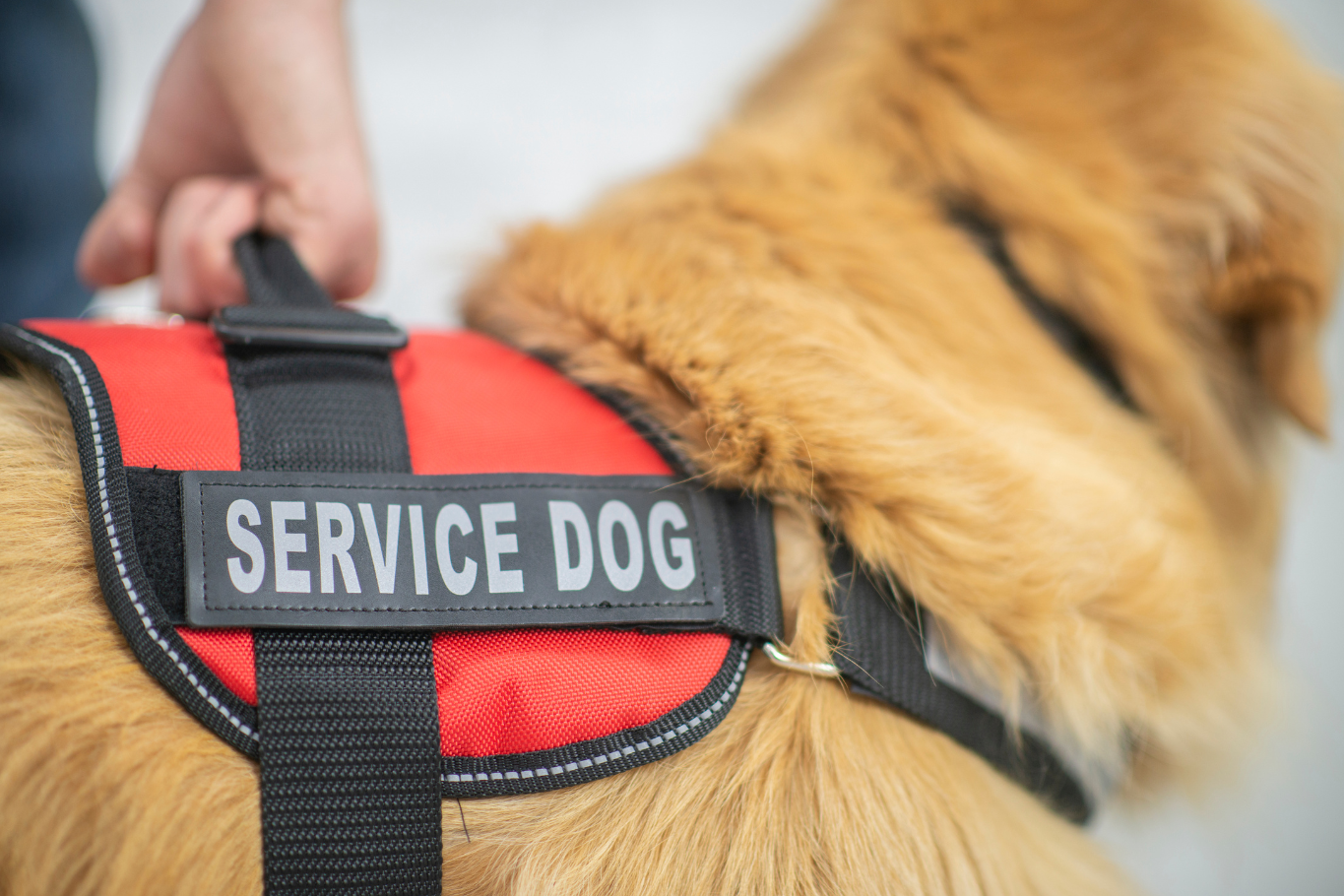
27 Sep, 2023
An Assistance Dogs International (ADI) accredited service dog program will ensure you receive a well-trained service dog that is: capable of mitigating your disability through at least three trained tasks, guaranteed follow-up support for the working life of the dog, and the highest standards for training the dog and you, the Veteran. Team Foster recently spoke to Laura Hilbert (Accreditation Coordinator) and Chris Diefenthaler (Executive Director) at ADl.
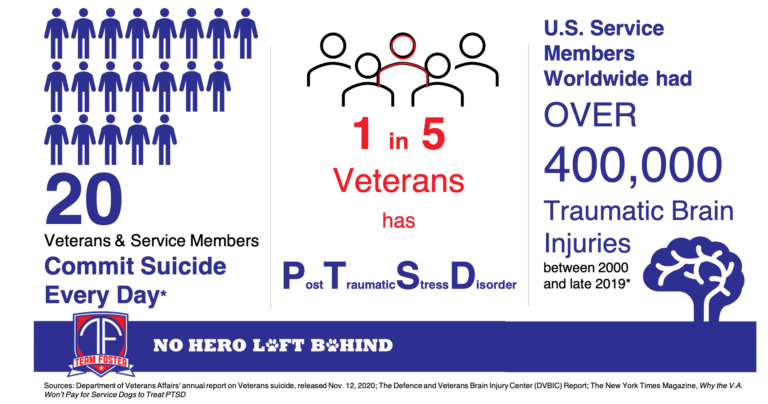
27 Sep, 2023
Strong. Driven. Caring. Words used by so many to describe Veterans who succumbed to the weight of their problems and committed suicide. One life lost to suicide is too many. We lose over 20 Veterans to suicide every single day. There are many faces behind the statistics. Their stories are unique and yet the same. They represent the 1% of citizens that volunteered to serve their country and to lay down their lives if needed. These Veterans had so much to live for. They were loved. They led lives of service. They were exposed to physical or mental trauma. They had families that they loved and who loved them. They had injuries that may or may not be visible to others. They became part of a larger family. They felt alone. Their lives meant something. They felt their lives meant nothing. They helped others. They needed help. At Team Foster, we are dedicated to ensuring that every Veteran’s struggle is our struggle and we live our motto: No Hero Left Behind. Advocate. Check in. Listen. Be present. Simple things that each of us can do to help a Veteran shoulder their burden and persevere. Know what to look for. There may not be signs that someone wants to hurt themselves, but there are some signs that someone may be considering suicide. These include: Social isolation Changes in sleep patterns — sleeping all the time or not at all Losing interest in things that used to be important or things that they used to care about Giving away possessions Abusing drugs or alcohol Feeling hopeless Know how to get help. Call the Veterans Crisis Line at 800-273-TALK (8255) . Family members and friends can call the Coaching Into Care line at 888-823-7458 to talk with someone who helps determine the best way to help the Veteran they care about. Are you, or do you know, a veteran who is in crisis? Connect with the National Suicide Prevention Line by clicking on these links to call, text, or chat 988 with someone who can help.
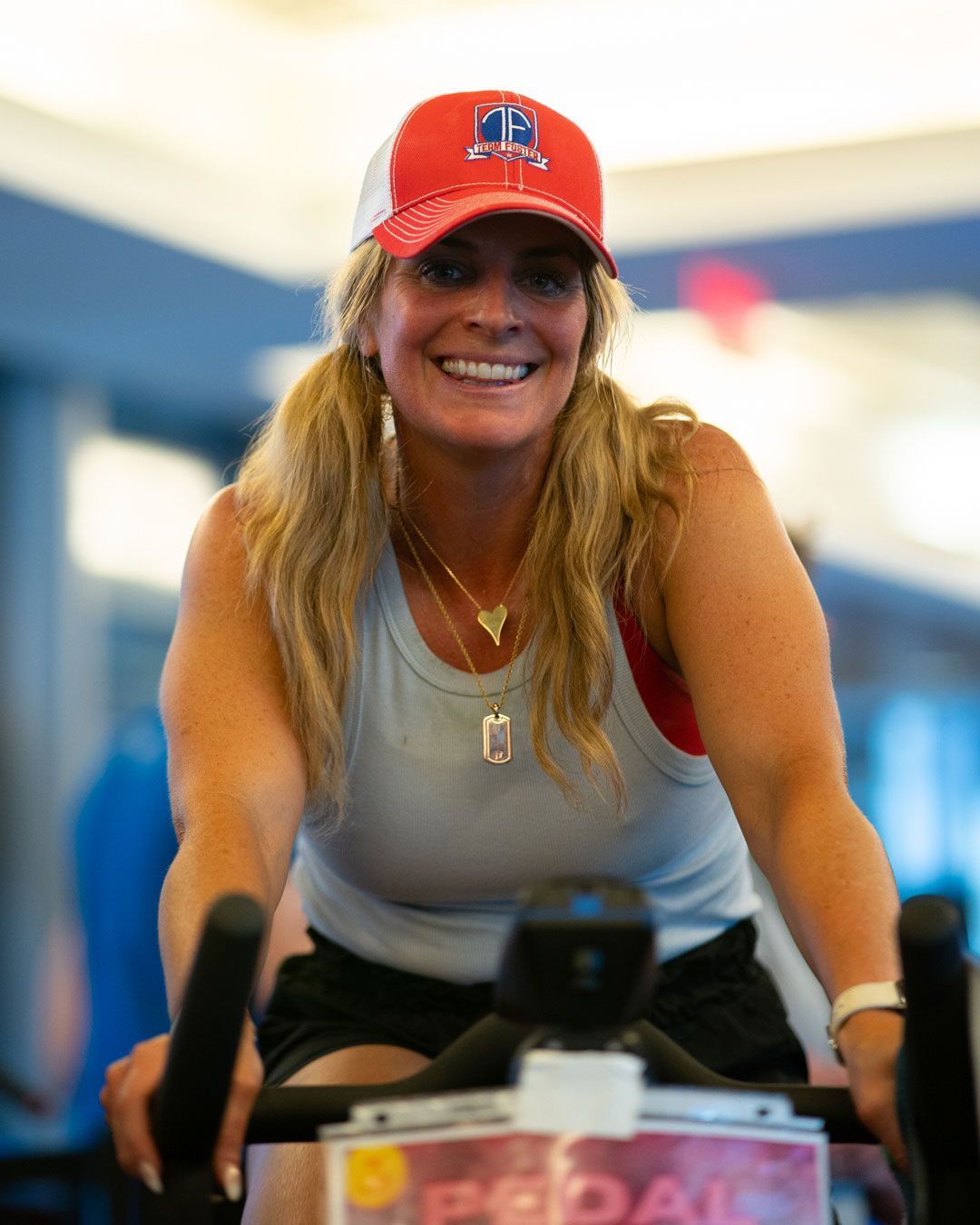
27 Sep, 2023
10 Simple Tips to Spin Like A Pro at Ruff Ride! There is no need to feel like a “kid on the first day of school” when you show up to Ruff Ride – whether you spin for 5 minutes or for 5 hours, here are 10 simple tips to ensure you’re dominating the TF leaderboard in no time… 1. ADJUST YOUR SADDLE HEIGHT Saddle height is a lot more important than you might think. Not only is it the key to your comfort throughout the session, but it also directly affects how effectively you can drive your heel. HOW TO: Stand alongside your BPM bike and bring the saddle up until it’s parallel with your hip bone. Once you’re on the bike and in the right riding position (knee over the ball of your foot with the pedal at 3 o’clock; knee slightly bent with the pedal at 6 o’clock), you’ll maximize your energy output. 2. CHECK YOUR SEAT POSITION When deciding on a bike saddle (what you will hear Shoshana and her crew calling the seat) position, you can adjust backwards or forwards depending on your height. The goal is to have your knees properly aligned, relative to your feet. HOW TO: Sit on the saddle with your hands on the handlebars, and the balls of your feet over the center of the pedals. Take a look at your forward leg and imagine a line going from your knee. Is your kneecap directly above the center of the pedal? If the answer is yes, your seat is good to go! 3. FINE-TUNE YOUR HANDLEBARS You’ll need to alter the height and position of the handlebars, just like the aforementioned items every time you swap out teammates/riders. HOW TO: The perfect handlebar setup is comfortable and limits unnecessary strain on your neck and back, while encouraging an effective, powerful riding position. Keeping the handlebars at the same height as the saddle is the most effective position in terms of power output. If you suffer from back problems or are recovering from an injury, you may want to keep the handlebars slightly higher to avoid aggravating any lingering weaknesses. 4. GET YOUR FEET IN POSITION Now that the bike’s ready, it’s time to make sure you’re body is in the perfect position, starting with your feet. HOW TO: For bikes with toe cages and straps, align the ball of your foot over the center of the pedal. This is the firmest, widest-striking surface on your foot, making this the most efficient and comfortable foot position. If you plan on wearing cycling shoes and using clipless pedals (BPM bikes offer both), check the cleat tension on the pedals and make sure that your cleats are aligned properly on your shoes. 5. FIND THE PERFECT PEDAL STROKE Did you know that there was an easy trick to getting the perfect pedal stroke? Here’s the secret: Imagine the movement as a clock face. Phase one takes place from 12 o’clock to 5 o’clock. Here you are pushing down, using your hamstrings to extend your foot downwards. Allow your heel to drop as you go past 12 o’clock. From 5 o’clock to 7 o’clock, you prepare to pull back up. Engage your calf muscles, and slightly point your toe downwards, as though scraping mud off your shoe. From 7 o’clock to 9 o’clock, your other leg is on the downstroke. Letting the pulling leg go limp means it needs to work harder – so, think about keeping it moving – don’t switch all your focus to the pushing leg. From 9 o’clock, through to 12 o’clock, you’re pulling up – imagine pulling your knee towards the handlebars, as you complete the full circle. 6. ADJUST THE RESISTANCE KNOB You’ll be in control of the resistance on your team’s assigned bike. Using too much resistance will feel like riding through concrete, so make sure to strike the right balance. HOW TO: If you feel like every pedal stroke is a conscious effort that travels into your ankles and your lower back, then back off the resistance dial. At the other end of the scale, if your spinning is super quick and feels almost out of control, you’ll find your lower back wiggling as you pedal, and your butt is shifting in the saddle. This will do you no good, and can result in some real saddle discomfort, so add a bit of resistance and you could actually add comfort, in the end. 7. BREATHE You’re pedaling as hard as you can, the music is pumping, the air around you is hot and sweaty… but you do still need to breathe! Spinning can be a bit of an explosion to the senses, but don’t get so carried away with the experience that you forget the basics of, you know, survival. HOW TO: Your muscles need oxygen to work, so take deep breaths! 8. CONTROL YOUR RIDE Riding at Ruff Ride isn’t supposed to be a punishment—it’s meant to be an enjoyable and even fun experience. HOW TO: When you need to catch a breath, slow it down and jump back in when you’re ready. Just try your best and have fun. It’s okay if you need to take a second for yourself to navigate what’s going on—do what you need to do for you. 7. STOP OVERTHINKING IT Instead of getting in your own head and psyching yourself out ahead of time, just give it a try. HOW TO: Keep the end goal in mind. Worry less about the ‘right’ outfit, water bottle, etc. This event is bigger than that! Get on the bike, clip in, and celebrate your ability to raise money for service dogs and Veterans. We want you to participate any way you can! 10. HAVE FUN There’s no reason to feel nervous before Ruff Ride. The music will be pumping, the instructors will make sure you get through their classes, and there will be loads of other people to motivate you – not to mention the 24 hours of straight party that will surround you! So, get signed up and enjoy! Decided spinning isn’t for you? Check out ways you can donate , volunteer , or sponsor !
Keep checking back in over the upcoming months for up-to-date news and articles from Team Foster. If you need more information, message our team at us@TeamFoster.org.
Team Foster is a tax exempt 501(c)(3) nonprofit organization registered
as 'Captain Erick Foster Memorial Ride'
EIN: 47-3192875
Content, including images, displayed on this website is protected by copyright laws. Downloading, republication, retransmission or reproduction of content on this website is strictly prohibited. Terms of Use
| Privacy Policy
